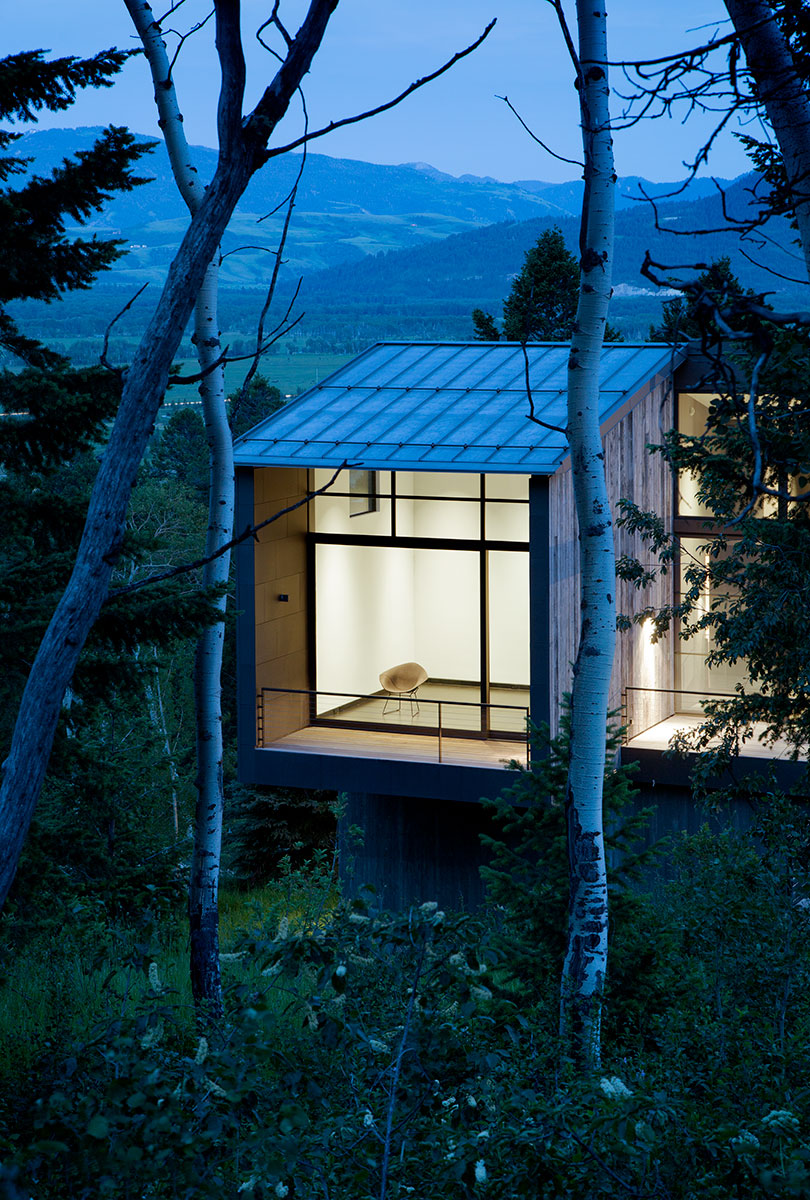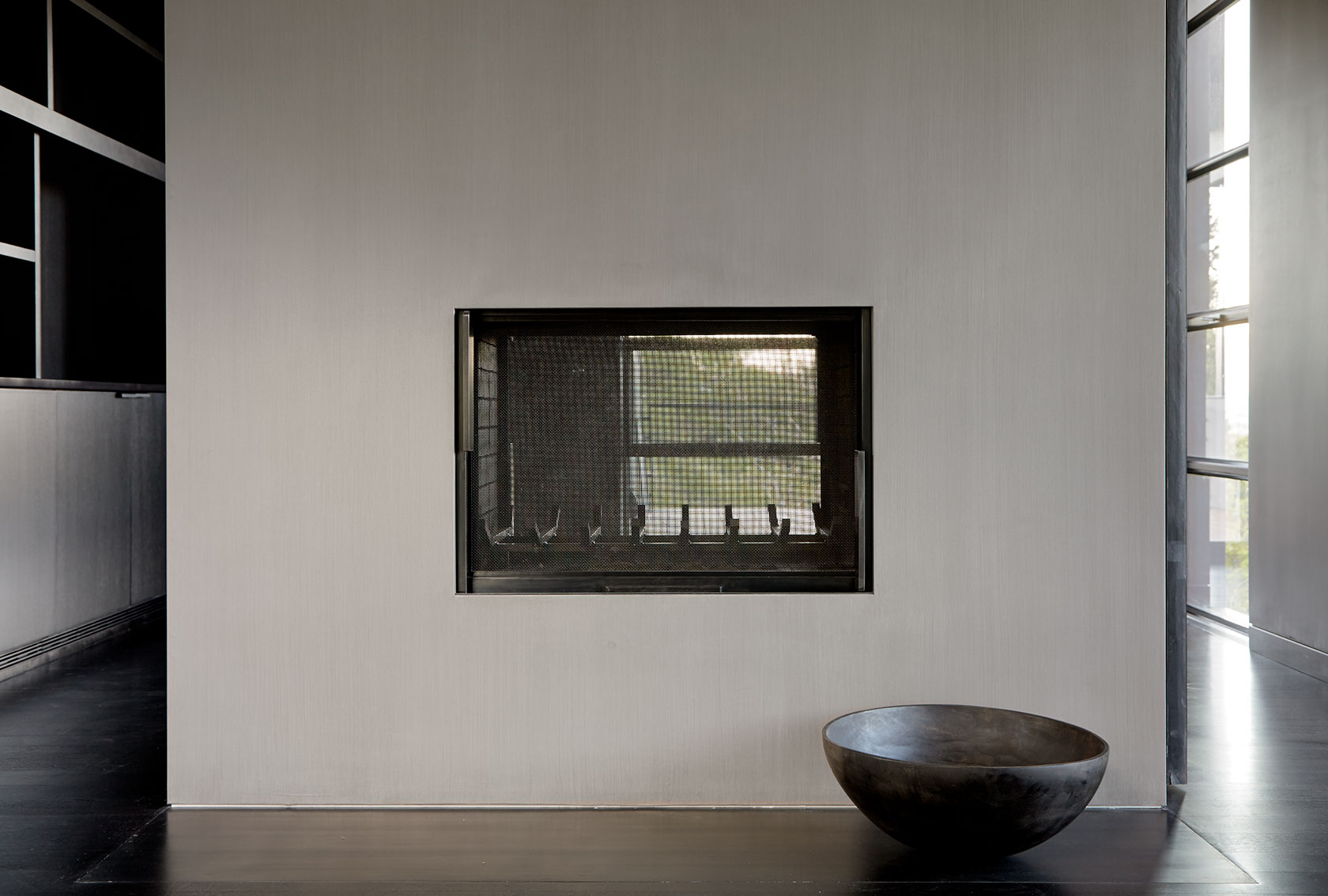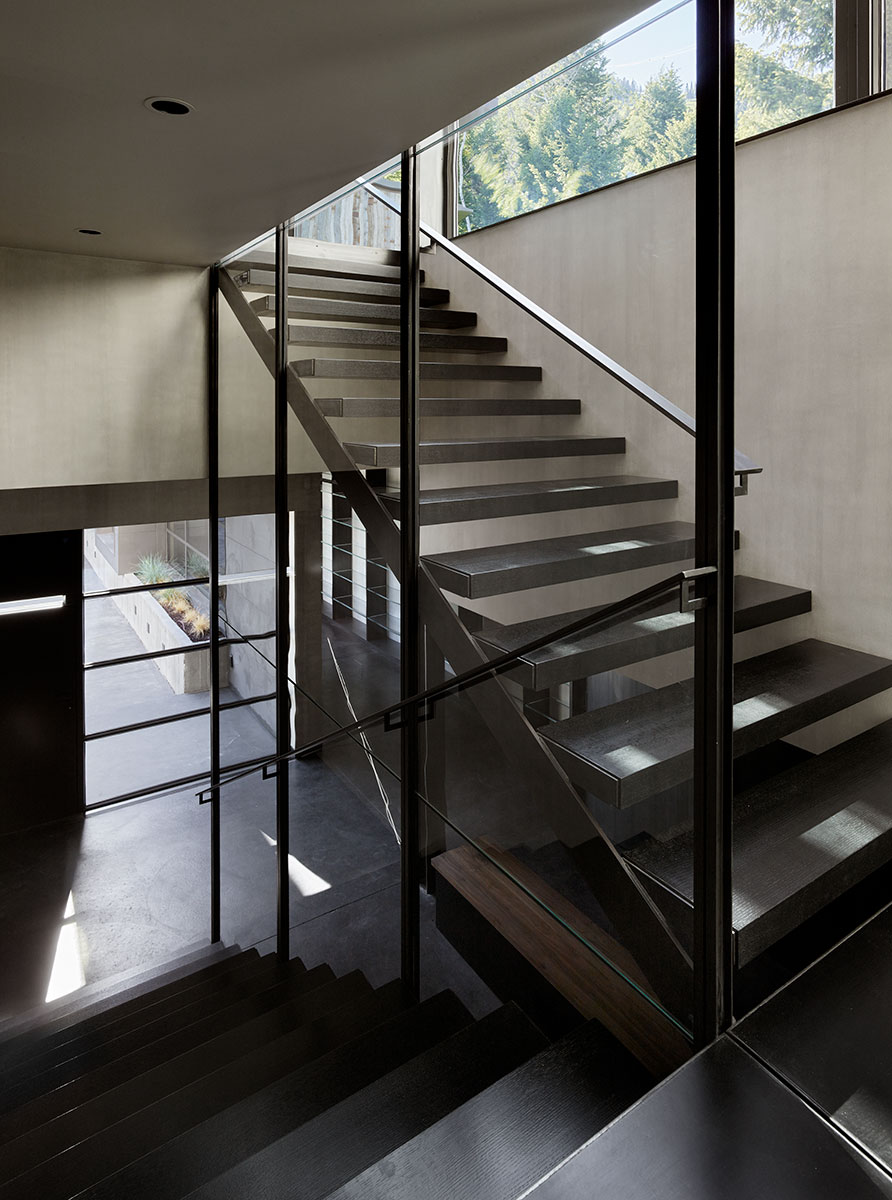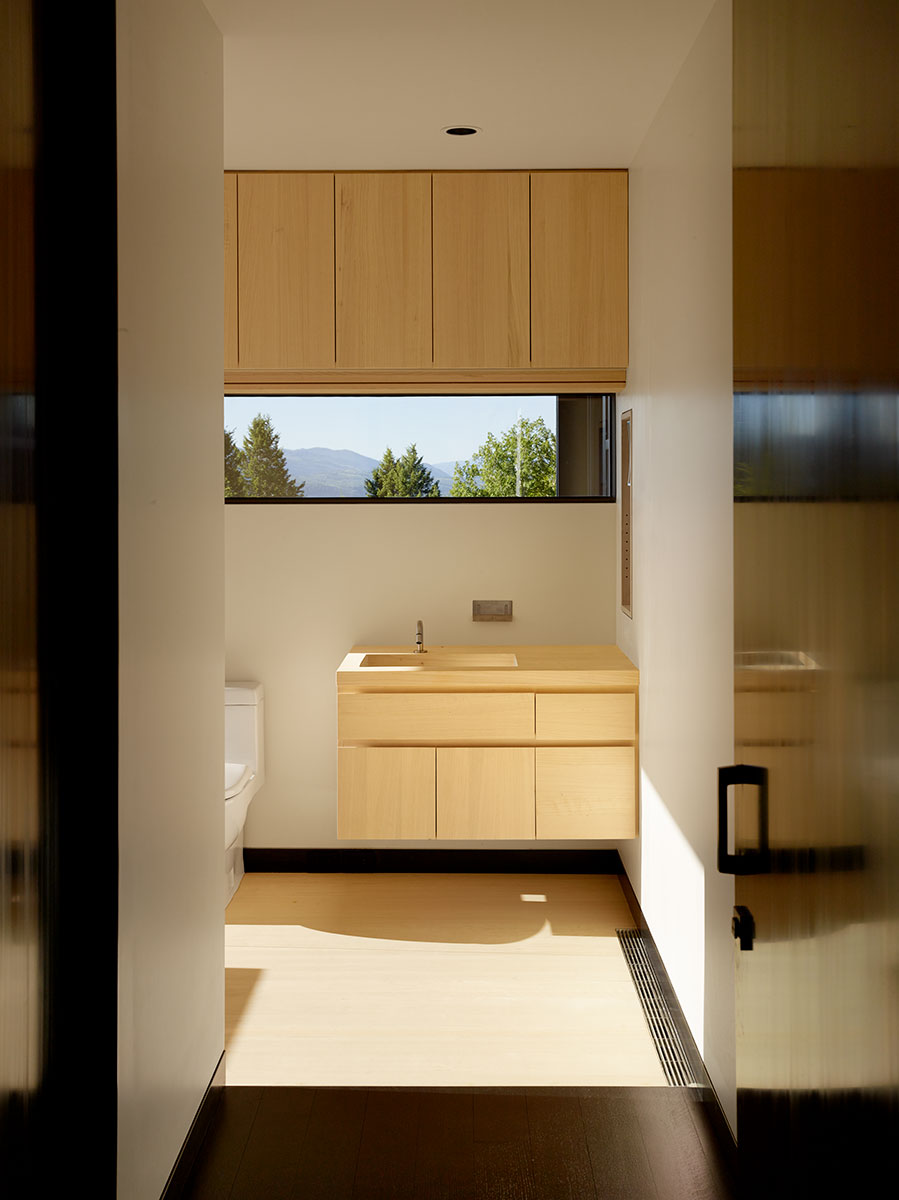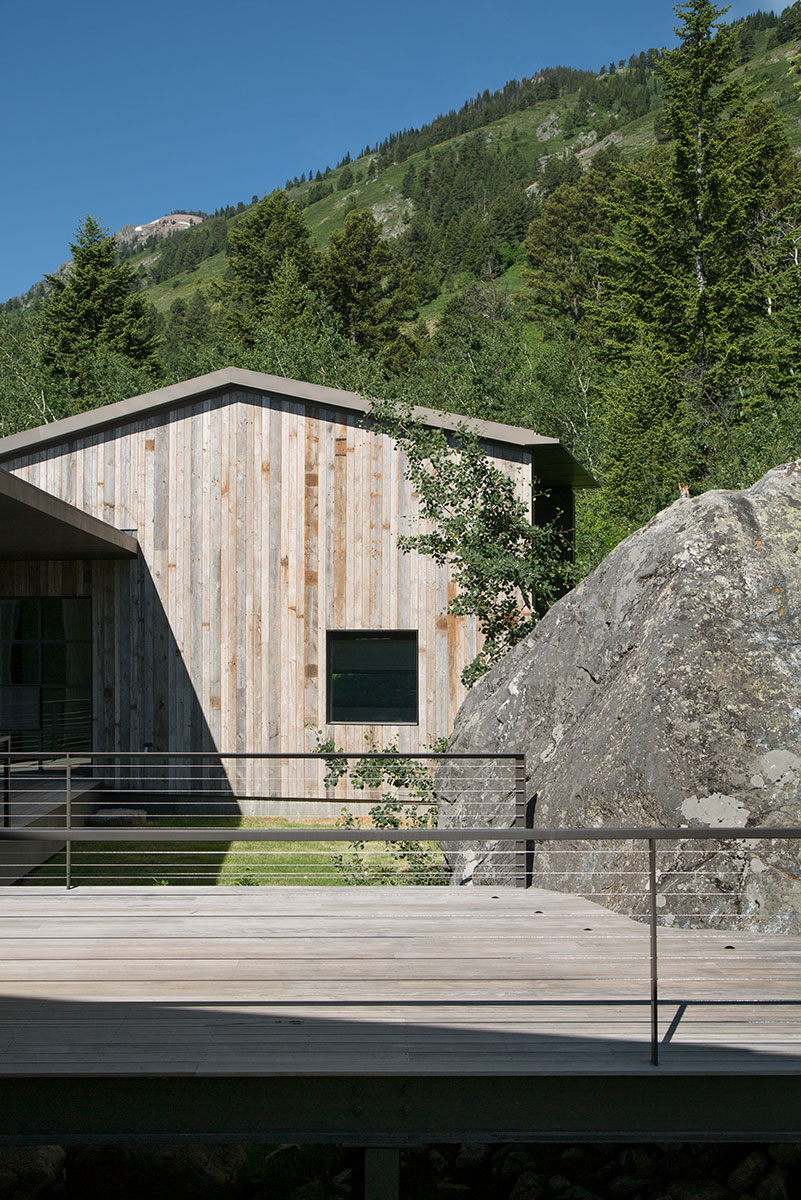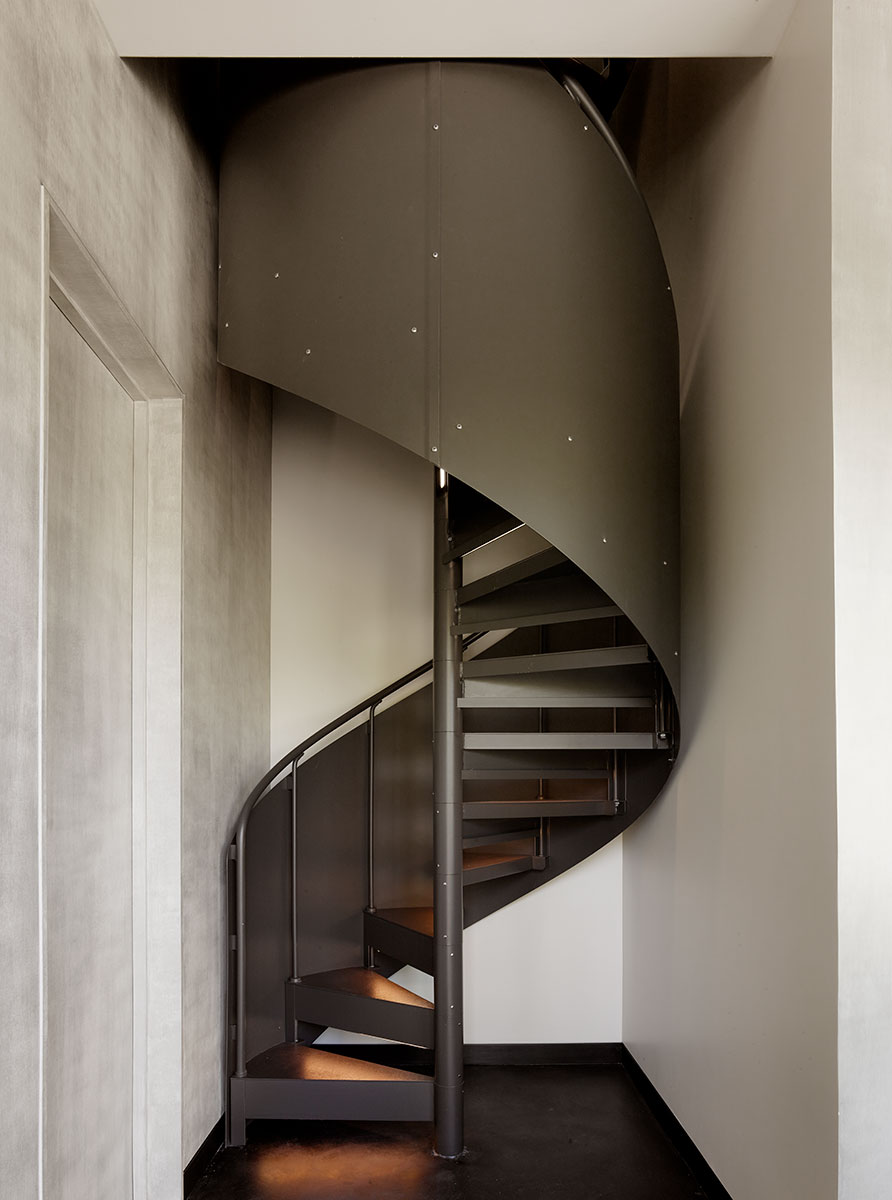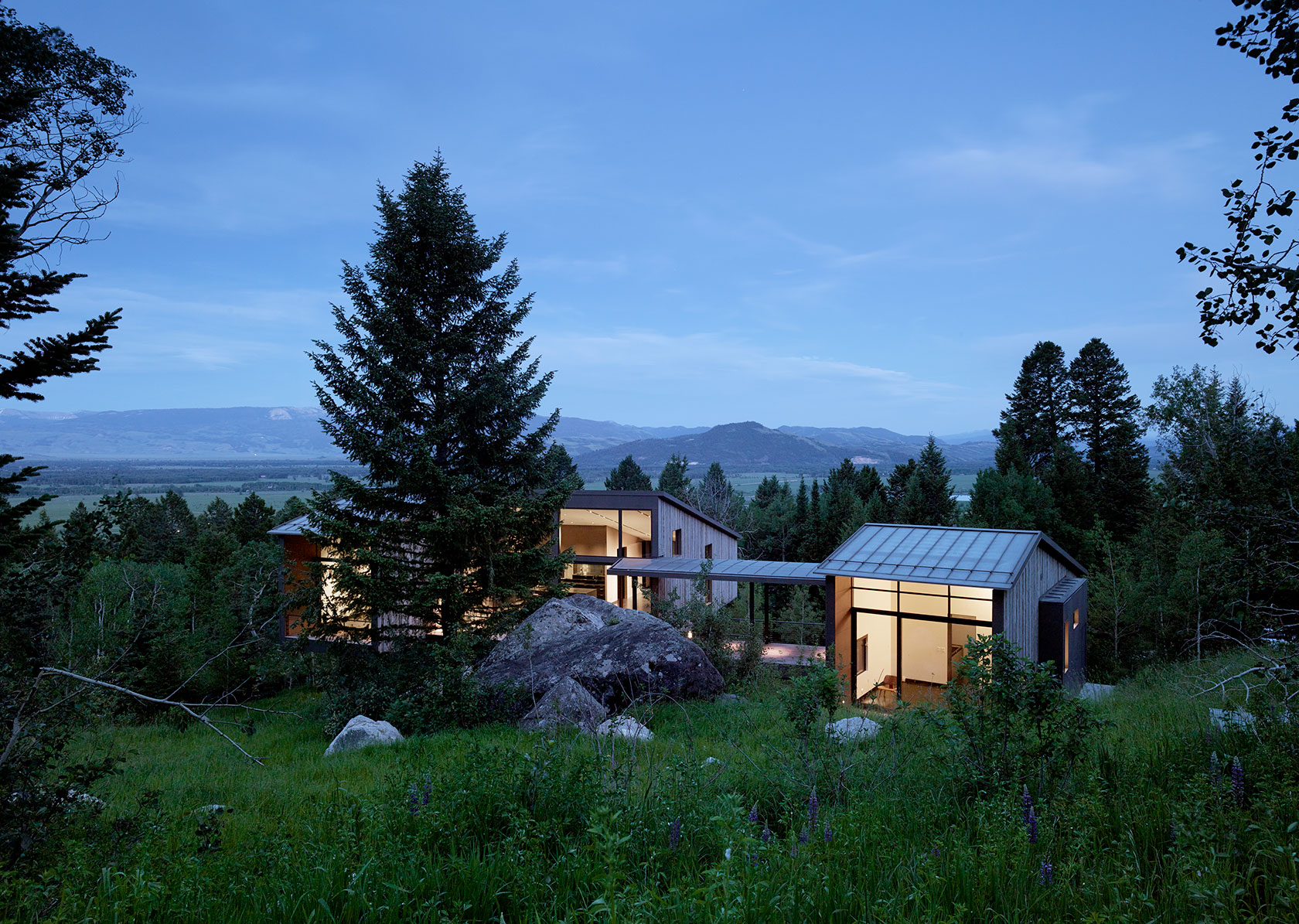The steep, forested site of the Boulder Retreat is dominated by a granite monolith that became the project’s namesake, focal point, and organizing force. The interrelation between the boulder and home on the forested slope creates an intimate Zen garden-like experience. The site also opens up to filtered views of a valley through an aspen grove and to mountain ranges that shape the horizon.
In response to the topography, the home is programmatically inverted, with the lower-level garage and library embedded in the hillside and the living spaces raised above. A covered porch connects two upper-level building forms, the primary living spaces and a remote escape pod for work and relaxation. This composition takes shape around the boulder, embracing the massive form by extending around its edges and delicately engaging its contours with a scribed deck.
The structure’s minimal-impact design prioritizes sustainable materials—locally sourced reclaimed barnwood, glass, steel, and concrete—in an abstracted interpretation of a cabin form. Wood clad structures that embrace the boulder rest on a bonderized metal base that delineates the lower-level library and the covered walkway. Ipe wood decking links the upper-level structures, draws inhabitants outdoors, and invites them, with a walkway, to explore the boulder. Interiors are defined by oak flooring and blackened steel that makes up a majority of the millwork and detailing. A dedicated tea room and the master bath sanctuary, with its Hinoki wood and Japanese influence, draw on Asian inspiration that extends from the contemplative natural garden on the home’s uphill side to the interior’s most intimate spaces.
The design juxtaposes dual aspects of expansiveness and intimacy. It highlights open views across the valley; while capitalizing on the quiet hillside and the dominant boulder from which the retreat takes its name.

